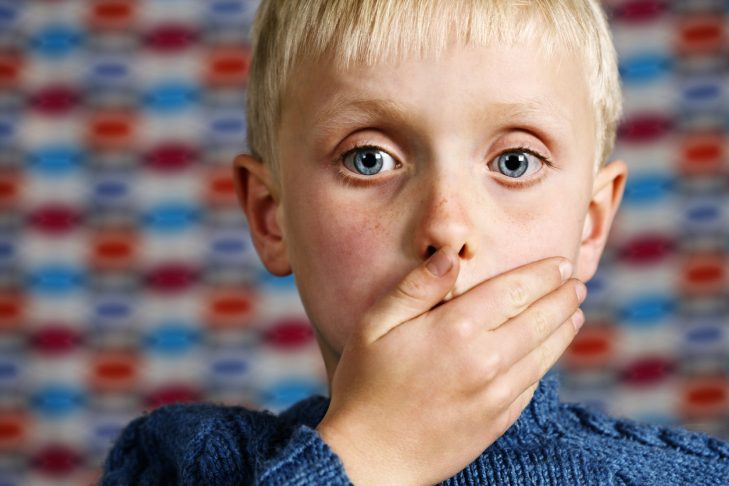“Say you’re sorry,” I tell my son, Andy. He is 8 and defiant.
“But I didn’t do anything!” he protests, turning beet red.
“You did. You hurt me. Please say you’re sorry,” I repeat.
“But Mom! I didn’t mean to! I didn’t do anything!” he insists.
“Andy, you twisted my neck! I know you didn’t mean to do it, but it hurt. When we hurt somebody else, it’s important to apologize,” I say. The words ring fake and sing-song in my ears. I’m trying to stay patient. He looks down and scuffs his bright orange Under Armour sneaker against the floor.
“Sorry,” he finally says, looking away. He’d grabbed my neck while roughhousing on the couch, after I told him not to. I’m not mad, but I also want him to know that it hurt. But instead of owning the mistake, he’s trying to make excuses and dodge blame, which is making me genuinely angry.
Related
Meanwhile, I’m becoming a “say you’re sorry!” robot. What does the sentiment even mean if it’s not genuine? He’s thoroughly unrepentant; mainly, he feels attacked and is sorry that he got caught doing something wrong. I can’t imagine that forcing him to simply utter “sorry” and move on is productive or meaningful.
I want him to feel authentic remorse, but I’m tired of trying to orchestrate his emotions. And, yes, I’ve done all the things I’ve read about: explaining why the infraction might hurt, modeling good apologies, quickly saying “I forgive you” once everything is settled. But the issue is, he genuinely refuses to believe that he’s done anything out of line in the first place, even when I explain otherwise. I’m hoping this is just a stage (I’m sure it is), but right now he’s busting out with more alibis and excuses than a slimy TV lawyer.
So this is very much on my mind as Yom Kippur approaches. When he twisted my neck, I finally pruned that lackluster “sorry” from him, and he slunk off to his room to sulk atop his bedspread. I didn’t bring it up again, but he pouted for the rest of the night and gave me a dry peck goodnight, as opposed to his usual cuddle. I woke up this morning feeling almost regretful that I even asked him to apologize, even though I know I’m right. Right? I don’t even know anymore. But I do know that I can’t discipline my kid for the sole purpose of eliciting manufactured emotions.
I’d love ideas from other parents who’ve gotten their children to apologize (and mean it!). And in the meantime, g’mar chatimah tovah. I’m off to ice my neck.





